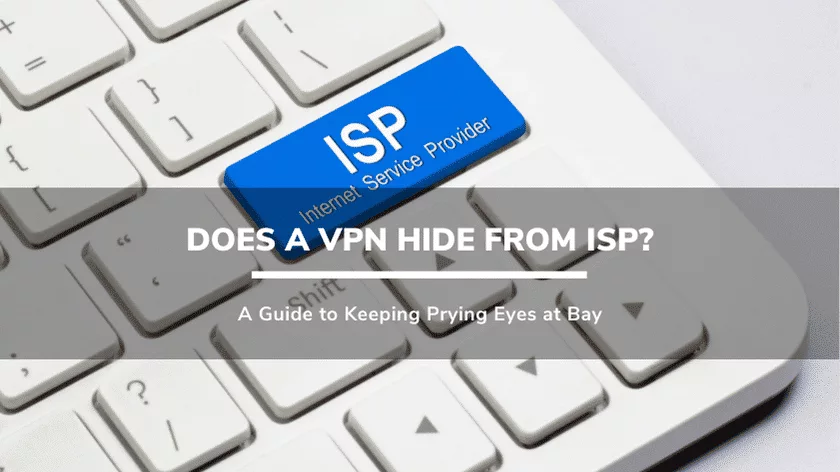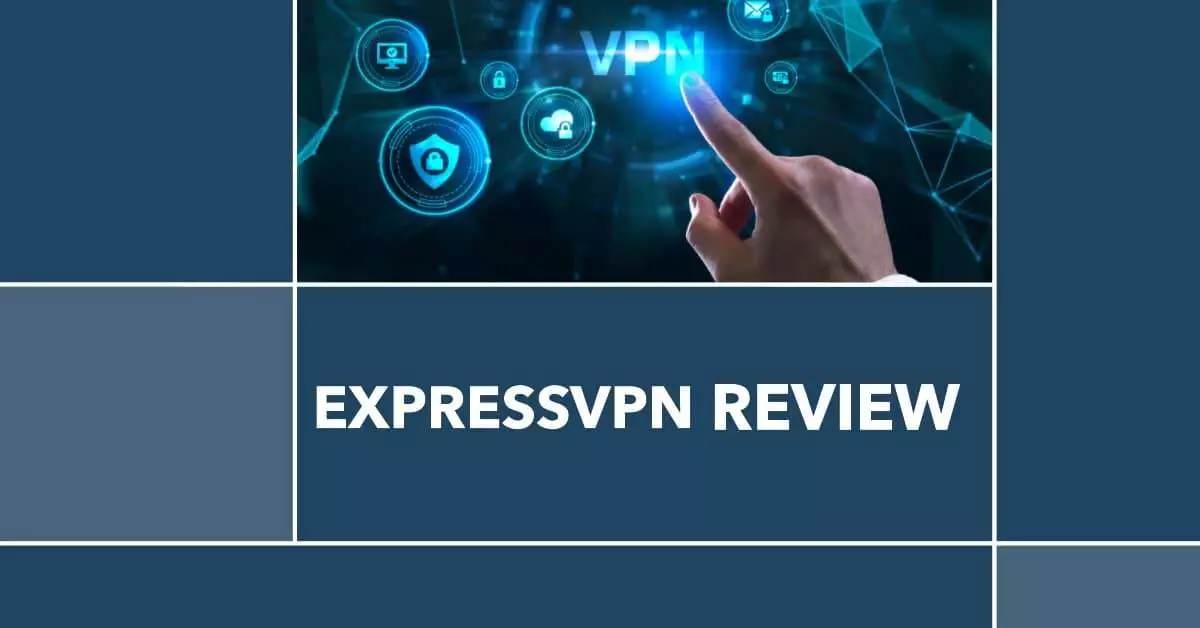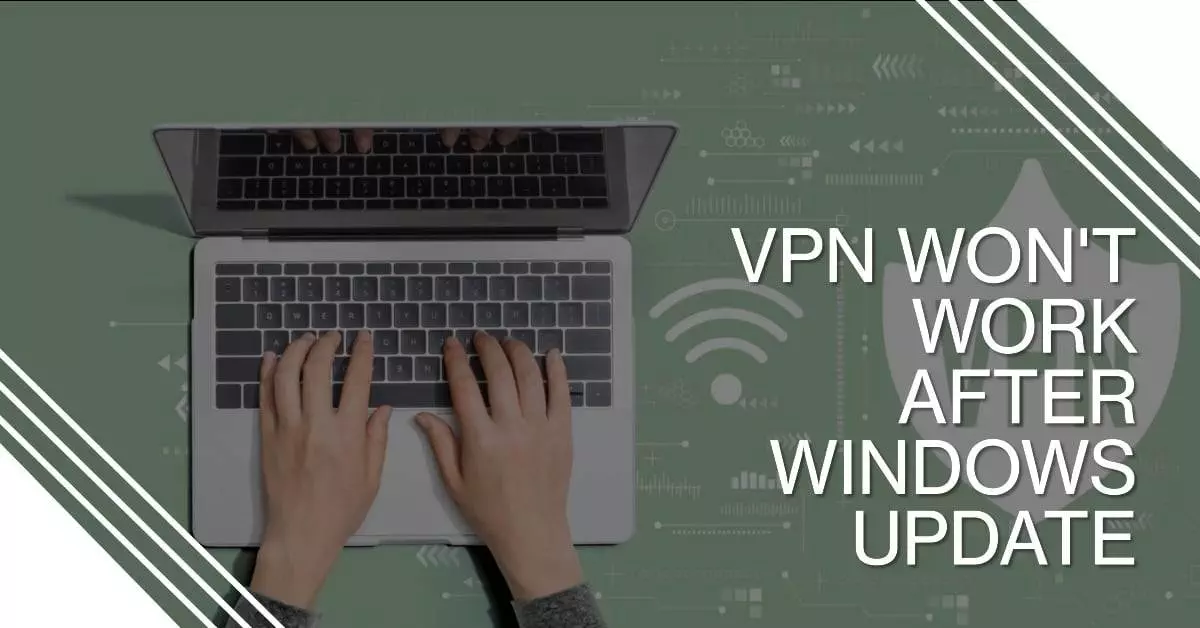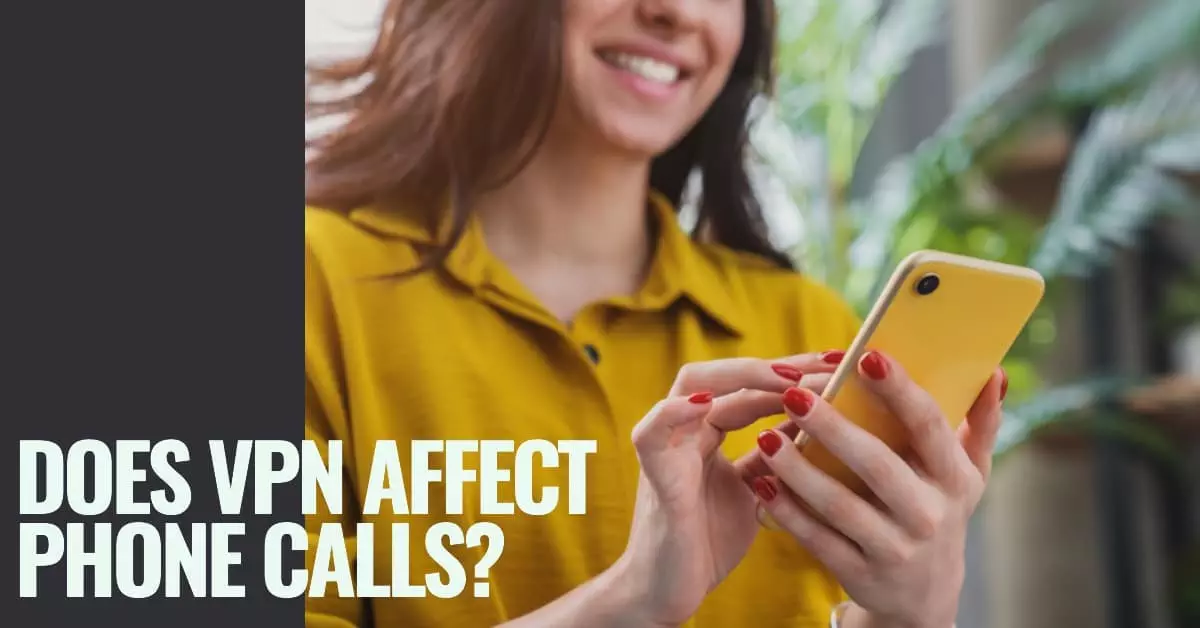When you’re browsing the internet, it’s important to have a sense of privacy. After all, you don’t want your ISP snooping around and seeing what websites you’re visiting, right? But what you really want to know is – does a VPN hide from ISP?
In short, yes. A VPN encrypts all of the traffic between your device and the VPN server. Your ISP could determine you’re connected to a VPN should it wish to, but they can’t see what websites you’re visiting or what data you’re sending.
In this article, we’ll discuss how a VPN can help hide your activity from your ISP and keep any prying eyes at bay.
We’ll also go over the pros and cons of using a VPN so that you can make an informed decision about whether or not it’s right for you.
Let’s dive in!
What does my ISP see when I am connected to VPN?
ISPs can see a lot of information about their customers when they’re connected to the internet, including the websites visited, what time you’re online, and how much data you’re using.
Gathering such data about customers allows ISPs to provide targeted ads, gain a deeper understanding of browsing habits, and check that customers aren’t doing anything illegal such as downloading copyrighted material from P2P sites.
When you connect to a VPN, your traffic is encrypted before it even reaches your ISP. This means that they can see that you’re connected to a VPN server if they really wanted to, but they can’t see what websites you’re visiting or what data you’re sending.
In many countries throughout the world, it’s perfectly legal to use a VPN. And if you’re in a country that does allow their use, most ISPs won’t bother trying to track down what you’re doing online because it’s not worth their time or effort.
Why would I want to hide my activity from my ISP?
At a time when data is collected and stored on just about everything we do online, it’s no wonder that people are becoming more concerned about their privacy.
One way to keep your data private is to hide your internet activity from your ISP, which is especially important if you’re using your ISP for email or other sensitive communications.
By hiding your internet activity, you can help to ensure that your data remains private and confidential, as otherwise, your ISP could sell it to the highest bidder without your knowledge or consent.
Hiding your internet activity can also help to prevent your ISP from throttling your connection or blocking access to certain websites. This will allow you to browse the internet freely without having to worry about being censored or monitored.
In some cases, you may also be able to get around geographic restrictions by hiding your internet activity from your ISP. For example, if you’re trying to access a website that’s only available in the US, you can connect to a US-based VPN server and browse the internet as if you were based there.
What do VPNs hide from ISPs?
When you connect to the internet, your ISP can see everything you do online, which is a huge problem for anyone who is serious about their privacy. After all, it means that your ISP can sell your browsing data to third parties who can then use it for targeted advertising or other purposes.
To make matters worse, some ISPs have been known to throttle certain types of traffic, such as video streaming or P2P file sharing. This can result in your internet connection being slow and unreliable. In a worst case scenario, your details could be passed on to law enforcement if you’re found to be downloading copyrighted material.
Fortunately, there is a solution in the form of VPNs. When you connect to a VPN, your internet traffic is encrypted and routed through a secure tunnel to the VPN server. This means that your ISP can no longer see:
- Your internet activity
- What websites you visit
- How long you spend on them
- What you download
As you can see, a VPN goes a long way to keep any prying eyes at bay, so it’s no wonder that more and more people are using them to protect their privacy online.
If you’re concerned about your privacy and want to keep your ISP from snooping on your internet activity, then a VPN is the best solution. Not only will it hide your internet activity from your ISP, but it will also encrypt your traffic so that nobody can snoop on what you’re doing.
How does your ISP know you’re using a VPN?
VPNs are a great way to browse the internet anonymously and securely. But have you ever wondered how your ISP knows you’re using a VPN?
There are two main ways that your ISP can detect VPN usage. The first is by looking at the VPN protocol being used. Many VPN protocols (like OpenVPN and IKEv2) are easily detectable because they use well-known port numbers. So if your ISP sees that you’re connecting to a server on these ports, it’s a pretty good indication that you’re using a VPN.
The second way that ISPs can detect VPN usage is by Deep Packet Inspection (DPI). DPI is a technique for inspecting packets of data as they travel across a network. By looking at the data within the packets, ISPs can tell whether or not you’re using a VPN.
One giveaway that you’re using a VPN is the VPN server’s IP address. When you connect to a VPN server, your traffic is routed through that server’s IP address. So if your ISP sees that you’re connecting to a known VPN server IP address, it’s another sign that you’re using a VPN.
Do ISPs care if you use a VPN?
When it comes to online privacy, using a VPN is often seen as the best way to stay hidden from prying eyes. But while most VPN providers claim to offer iron-clad protection, the truth is that your ISP can still see what you’re up to if it really wants to.
The reason for this is that your traffic is still routed through your ISP’s servers, meaning that they have the ability to snoop on your activity if they so choose. However, in most cases, ISPs don’t bother trying to track their users’ VPN usage.
The main reason for this is that it’s simply not worth their time and resources because there are billions of people using the internet, and trying to keep track of who is using a VPN and who isn’t would be a monumental task.
Furthermore, there’s also the risk that they would end up blocking legitimate traffic if they started targeting VPN users. So while your ISP could technically find out if you’re using a VPN, in reality, it’s just not worth their bother.
What To Look For When Choosing A VPN Service
Choosing a VPN can be overwhelming with all of the different features to consider, but there are a few key things to look for that will help to make the decision easier.
A strict no-logs policy should be at the top of your list of things to look for, as this will ensure that the provider won’t be able to store information on you which could be used to identify you at a later date.
Another important thing to look for is military-grade encryption, as this will make it impossible for anyone to snoop on your traffic and read your data. Without a high level of encryption, your privacy could be at risk because your data could be read by anyone who intercepts it.
Finally, it is important to find a VPN with a wide server selection. This way, you can choose the server that best meets your needs and if you find that a particular server is becoming overloaded or not performing as well as it could be, you can simply switch to another one.
Other important considerations include:
- Support for multiple devices
- User-friendly interface
- Pricing and value for money
- Speed and performance
Final Thoughts on Does VPN Hide From ISP
In an age where personal information is being increasingly collected and sold, it’s more important than ever to take steps to protect your privacy.
One of the best ways to do this is by using a VPN, as it will hide your internet activity from your ISP so that they can’t sell your data or use it to snoop on you.
And when you factor in that a VPN can keep you safe from hackers, it’s clear to see that it’s a worthwhile investment.
Just be sure to choose a reputable provider such as Surfshark or ExpressVPN, and you can rest assured knowing that you’ll soon take your online privacy to a whole new level.
If you found this article helpful, please share it with your friends and family so that they can also benefit from a VPN’s privacy-protecting powers. Thanks for reading!




Leave a Reply